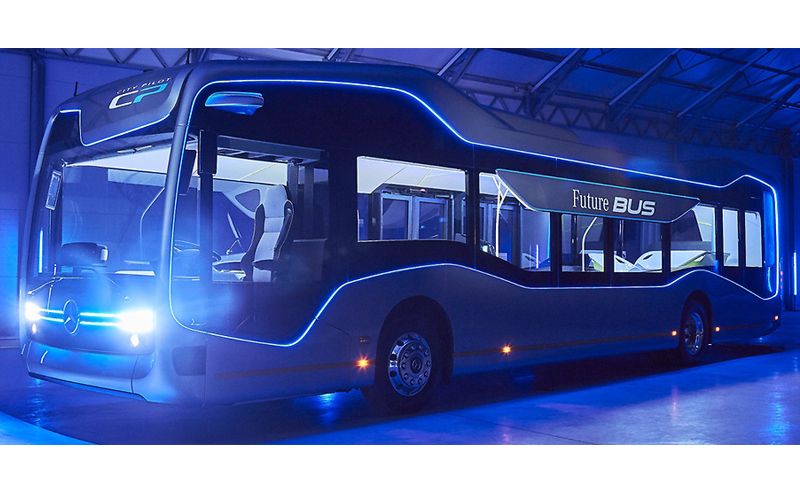Although a driver was on board for the duration of the journey, the Future Bus was capable of taking the strain due to Mercedes Benz's CityPilot technology.

The Mercedes-Benz Future Bus with CityPilot has driven autonomously for the first time on a 20km route in Amsterdam, stopping at bus stops with centimetre accuracy, autonomously obeying traffic lights, hitting speeds of up to 70km/h, avoiding pedestrians, following bends and negotiating tunnels.
Although a driver was on board for the duration of the journey, the bus was capable of taking the strain due to the company's CityPilot technology, which communicates with sensors and markings integrated into a specially prepared bus lane, which, Daimler claims is the fastest, simplest and most cost effective way of adapting existing highway stretches for use by semi-autonomous vehicles.

As well as self-driving innovation, the record-setting bus also offers passengers a glimpse of how interiors are set to evolve to meet changing mobility demands. Inside the bus, space is divided into two, a central space for those traveling short distances balanced by larger spaces modelled on the idea of a public square, packed with natural light for those travelling further with park-inspired bench seating. All tickets are electronic with the bus automatically ‘validating' passengers as they board or alight again.
And of course, in an age of hyper-connectivity, two huge 43-inch monitors display all necessary information regarding the route alongside points of interest, news headlines and other potentially useful or rich information for those on board.
Following this initial success, Mercedes is now aiming to bring this tech to market before decade's end.
 But the question still remains: can self-driving vehicles be trusted?
But the question still remains: can self-driving vehicles be trusted?
